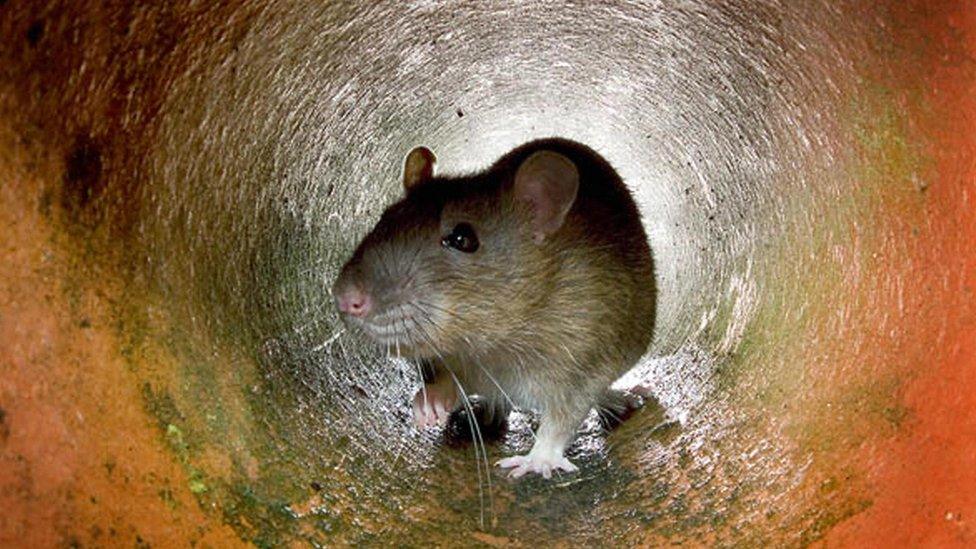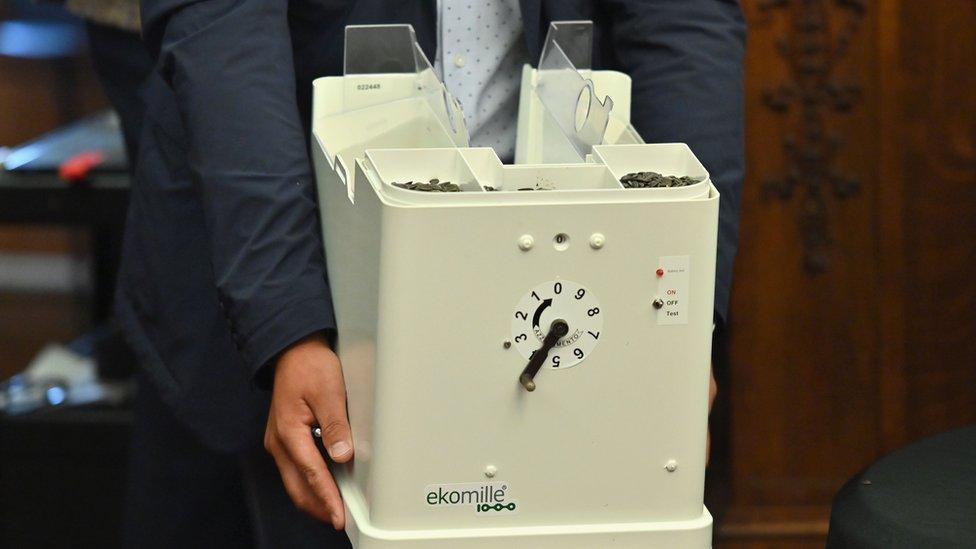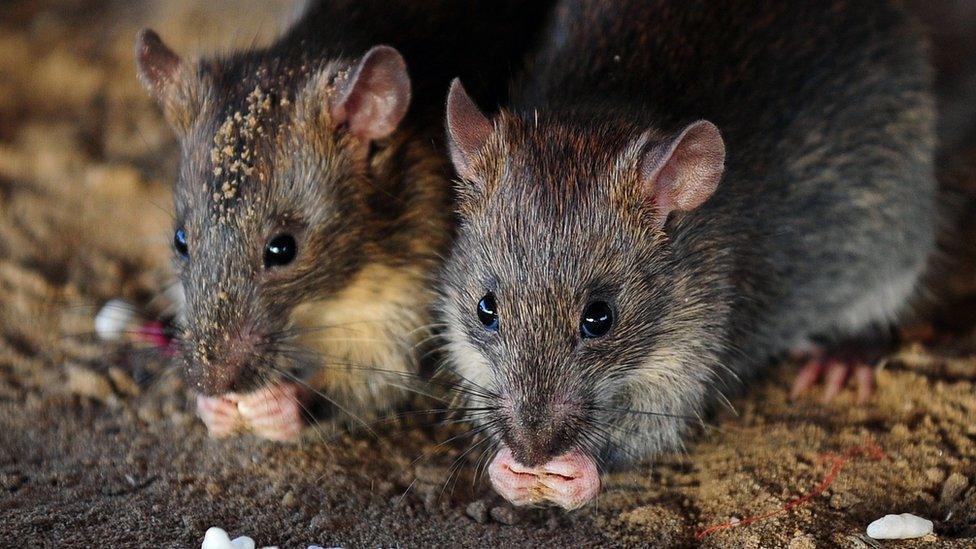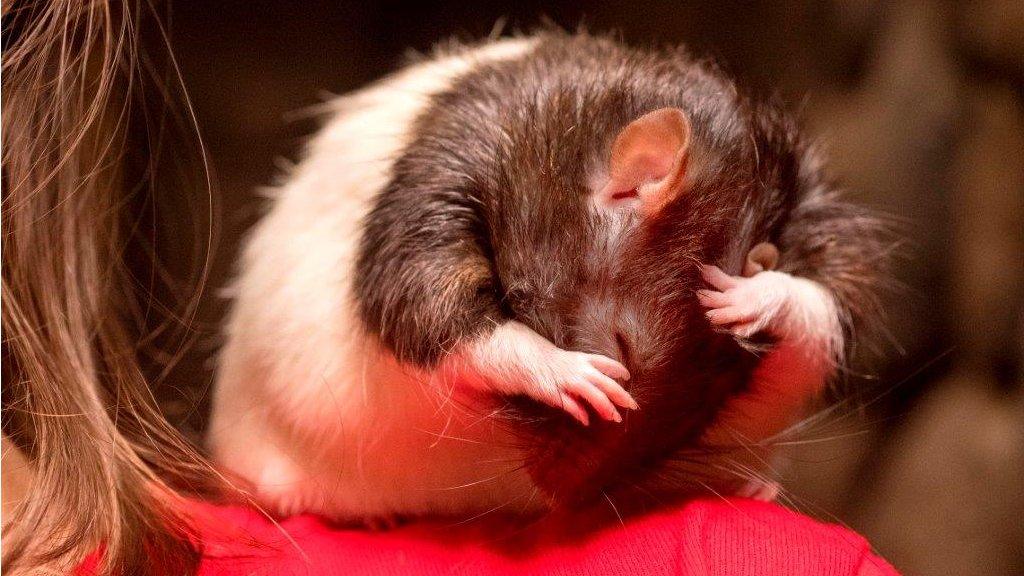New York rats: Alcohol can solve problem, say officials
- Published

A machine, a trap door and a pool full of liquid alcohol.
That's the latest weapon in the war against rats, say officials in New York.
The rats are attracted with bait by a machine and sent through a trap door straight into a pool of alcohol-based liquid.
It's one of the most rat-infested cities in the US, with rodents moving around through rubbish and train tracks and causing chaos for many residents.

The machine attracts rats with bait
How does it work?
In effect, it's a bucket which lures rats and then sends them to their death.
They're knocked out by the liquid and "drown eventually", according to Anthony Giaquinto, the president of Rat Trap, who import the device.
The rodent dies in the tank - which can hold up to 80 rat carcasses.
During a demonstration of the machine sanitation workers opened the container, showing several dead rats floating in a green liquid.
In a month long trial in Brooklyn a total of 107 rodents were lured and killed.
New York's rat problem
In July 2017 the city announced a $32 million (£26 million) program to cull thousands of rodents by installing rat-resistant bins.
And they also trialled a liquid bait that could make rats infertile.
But these past methods haven't worked.
The rat caused panic, as Katy Hastings reports
Reported rat sightings have soared by almost 38% to 17,353 last year, according to OpenTheBooks, external - a non-profit watchdog group.
This new solution has been described as "humane and environmentally friendly" by Brooklyn Borough President Eric Adams.
He added it would be rolled out in some of Brooklyn's most rat-infected districts.
But some - such as animal rights group Peta - say this will be "cruel and frightening".
"New York's alcohol traps will kill rats on the spot, but they'll do nothing to curb overall rodent populations, which rebound when animals remain fertile," says Elisa Allen, Peta's director.
"So drowning - like poisoning - will be ineffective in the long run."


Follow Newsbeat on Instagram, external, Facebook, external, Twitter, external and YouTube, external.
Listen to Newsbeat live at 12:45 and 17:45 weekdays - or listen back here.
- Published7 August 2019

- Published20 July 2018

- Published12 July 2018

- Published16 January 2018

- Published23 October 2015
